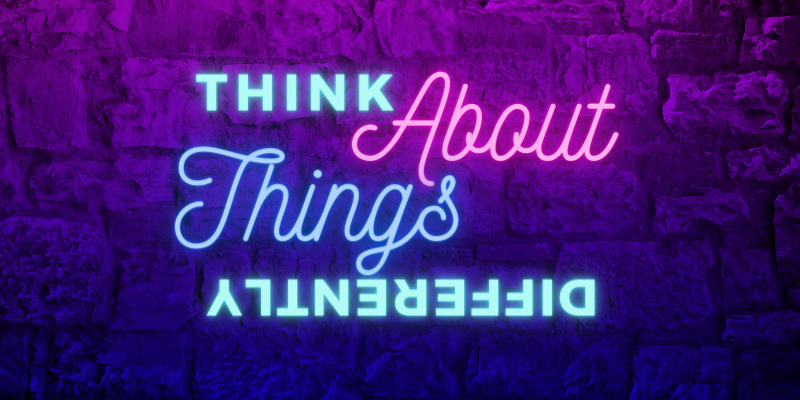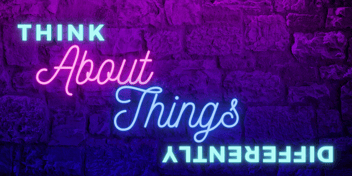The PMO Parallax
Helping Project Management pass the vibe check, one (chaotic good) retrospective at a time!
March saw the return of Spring! But with it, came a number of people returning to the job market. Some for the first time in Decades. They are now sifting through a sea of very generic advice on interviewing best practices. So, I've decided to throw a life preserver out to anyone struggling to stick out among all the fish in the sea.
I have interviewed thousands of people throughout the course of me career, and have compiled a list of the most common do's, don'ts, absolutely not's, and my honest feedback on the whole experience.
Canned responses are for AI, not you
I've spent a good amount of my career interviewing people. I've had the opportunity to be on both sides of the table, which has given me a helpful perspective on people.
There is so much advice out there on the best way to succeed in an interview. And don't get me wrong, most of it has value. BUT I'm here to tell you that the number one thing you should do is:
BE YOURSELF
Now, I'm not saying show up in sweatpants with a beer. What I mean is that you have to let your true self show through. Whether I'm interviewing to hire someone myself, or determining if they're a good fit for a placement, I can tell almost immediately if someone is being authentic or telling me what they think I want to hear.
Answer questions with personal stories. Talk about your passions. If you're a Star Wars super fan, quote Yoda when explaining your willingness to take risk - "The fear of loss is a path to the Dark side."
If you're not being true to yourself, you're doing yourself a disservice. If you don't get the job, or if someone reacts negatively to your thought process, well… then it wasn't meant to be. You shouldn't settle, or you'll be right back in this same place because you took a role that wasn't a fit for them or YOU.
The dreaded question...
"Tell me a little about yourself and your background."
This is typically the first question that is asked, so it's your opportunity to set yourself apart. 🦄 Building your personal brand is important for so many reasons, but this is a big one. (More on this later)
This brings me to my first "Absolutely Not": Under no circumstance should you read your resume, or follow it like a script.
What I think when this happens: I can read, and we've now established that you can read, congratulations. The resume is a blunt instrument, with little value beyond capturing the attention of a keyword algorithm.
The response here should be a mixture of why's and how's. What I mean by that is; Why are you in the field that you are in, and how did you get here? You are more than a list of skills. You are a cumulation of thoughts, ideas, and experiences. The sum is more than the parts of the whole.
Start by defining yourself. "Absolutely! My name is Amanda Frye, and I'm a classically trained project manager turned COO with over 15 years of experience in technology and [insert something relevant to the job opening here]. I took an interesting path to get where I am today..." It's short, succinct and gets the key points out early, to grab attention.
Now, this is where you feather in your experience mixed with personal details and goals:
- I started my career in [insert here], were I [learned this/accomplished this/relevant story]
- This opened the door for me to [move you made/promotion]
- I've always had a passion for [something related to the job you're interviewing for]
- I was able to [discuss an impressive win or achievement]
- I'm working towards [education/certification/dream job] and [steps you're taking or how you will utilize]
You are the author of your own story. If you were watching a movie about your life, what scenes would you include?
Let's talk etiquette..
Interviewing in this day and age is different than it was several years ago. Most interviews are remote. We're not dressing up in suits and blouses to awkwardly sit in a waiting room to meet a stranger. However, that doesn't mean that we throw all rules of etiquette to the wind.
Don't be late.
If you are going to be late you know beforehand! Send an email explaining that you're running behind in another meeting, or that you're having technical issues with the web conference client. You should have logged in 2-3 mins early, so if you're having issues, drop a note. Everyone is human, we understand.
What I think when this happens:
If you're late and don't send a note, I have to assume that you lost track of time, or you don't check your calendar often. Then that perception clouds the lens from which I view your ability to service customers and your team.
Consider your background.
Everyone has a different working environment. You may work from a home office, the garage, a corner of your living room... etc. All of that is fine, and understood. What you want to avoid are things that could cause bias to the interviewers. I've seen some very interesting things over the years. Some things to maybe avoid:
- Interviewing in bed (pillow and all)
- Garbage and old plates/food
- Other people in the background (you can't even imagine)
- Political or illicit paraphernalia
What I think when this happens:
As much as people like to think they have no biases, sometimes its unavoidable. My reaction to these things ranges from thinking you lack attention to detail to believing you just don't care enough to try.
How you present during the interview.
There are many different devices out there with different resolutions, and everyone has a unique monitor/speaker setup. We get it. But, a general level of effort should be taken to ensure you present as well as possible. Test your camera and microphone before hand. Invite a friend to a google meet, or preferably the platform being used the interview and get a quick lay of the land.
- Does it work at all on that platform?
- Do you need to change your settings?
- Are you blurry/too quiet?
Also, one of the things I see often is poor body language that can send the wrong signals.
- Many people struggle with eye contact. Practice looking and speaking into the camera.
- Sit up. I don't need you to balance a book on your head, but don't slouch down in your chair, or have your feet up.
What I think when this happens:
We all have technical issues from time to time, but with a little preparation they can be avoided. I like to think I'm more forgiving than most, but it can seem like a lack of attention to detail and preparedness. And, when it comes to body language if you're looking down, you portray a lack of confidence, and if you're looking somewhere else, I'm going to think you're distracted.
Final Reflections
Getting to the interview stage these days is an accomplishment in itself; be proud, but don't squander it. You have 30-60 mins to sell yourself, and make an impression. Burn the calories to work on your personal brand. With a little bit of prep work and practice you'll land the perfect role in no time!
Now go forward my young padawans and disrupt the interviewing construct! "Rebellions are built on hope." 😉
Check out this month's Book Club recommendation: Atomic Habits


